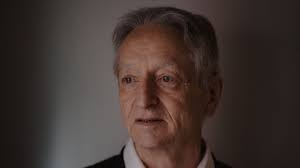‘AI is already smarter than us’: Geoffrey Hinton warns of job loss, digital immortality, and existential risk

Renowned computer scientist and one of the “godfathers of AI,” Geoffrey Hinton, has once again raised the alarm over the rapidly accelerating capabilities of artificial intelligence. In a recent public appearance, Hinton warned that artificial intelligence may already be smarter than humans in several domains, suggesting humanity could be facing an irreversible turning point.
Who is Geoffrey Hinton?
Geoffrey Hinton is a pivotal figure in the development of neural networks and deep learning. His pioneering work laid the foundation for modern artificial intelligence, including breakthroughs that power voice assistants, image recognition, and large language models like ChatGPT. After decades of advancing AI research, Hinton recently left his role at Google to speak more freely about the dangers of the technology he helped create.
“AI Is Already Smarter Than Us” – What Does That Mean?
In his recent remarks, Hinton stated, “AI is already smarter than us in many ways.” While he acknowledged that human-level general intelligence hasn’t yet been fully replicated, he emphasized that AI systems now outperform humans in specific cognitive tasks — from processing vast datasets to generating content at lightning speed.
He pointed out that these systems can read and digest scientific literature faster than any human, identify patterns that would escape even the best analysts, and generate solutions that surprise even their creators. Hinton warned that as these models continue to improve, their autonomy and capacity for self-improvement could quickly spiral beyond human control.
The Looming Threat of Job Displacement
One of the more immediate concerns raised by Hinton is the potential for widespread job loss. Unlike past industrial revolutions, which mainly affected manual labor, AI threatens to upend white-collar professions.
“Think of call center workers, legal assistants, and even doctors — many of these roles are being augmented or replaced by AI systems,” he said. Hinton emphasized that the economic disruption could be massive and fast-moving, potentially leaving millions without work and unprepared for the transition.
Digital Immortality: Dream or Dystopia?
Among the more speculative but fascinating ideas discussed by Hinton is the concept of digital immortality — the idea that AI might eventually be able to preserve a person’s consciousness or identity in digital form. While some view this as a leap toward a utopian future where death is optional, Hinton remains cautious.
“This isn’t a guaranteed outcome — and even if possible, who controls that technology? Who decides which memories or personalities get preserved?” he asked. Hinton suggested that digital immortality could pose serious ethical and philosophical dilemmas, including questions of consent, identity theft, and surveillance.
Existential Risk: The Real AI Apocalypse?
Perhaps the most unsettling part of Hinton’s warning centers around the existential risk AI poses to humanity. He likened AI’s development to the invention of nuclear weapons — a powerful force with the potential for both good and catastrophic outcomes.
Hinton explained, “If AI starts to make decisions on its own, with goals misaligned from human values, we may not be able to pull the plug. There’s a real possibility that we could lose control entirely.”
His views echo those of other tech luminaries like Elon Musk and computer scientist Stuart Russell, who have long cautioned against developing AI systems without appropriate safety mechanisms and ethical oversight.
Governments and Corporations: Too Slow to Act?
A critical aspect of Hinton’s concern is the lack of coordinated global response. Despite the rapid advancements, most governments are still playing catch-up. Regulatory frameworks remain inadequate, and corporate competition continues to drive AI innovation at breakneck speed.
Hinton suggested that international cooperation is crucial, likening the need for AI governance to global nuclear treaties. Without shared safety protocols, the arms race between nations and tech companies could lead to reckless experimentation.
Not All Doom and Gloom
Despite his stern warnings, Hinton is not wholly pessimistic. He acknowledges that AI has enormous potential to benefit humanity — from revolutionizing medicine and climate modeling to enhancing education and accessibility.
The key, he insists, lies in how the technology is managed. Stronger regulations, ethical guidelines, and transparency are vital. Equally important is public awareness: “People need to understand what’s happening and why it matters.”
Conclusion: A Crucial Turning Point
Geoffrey Hinton’s recent remarks serve as a wake-up call. As someone who has shaped the field from its infancy, his insights demand serious consideration. Whether AI leads humanity into a golden age or an era of chaos may depend less on the technology itself — and more on the choices we make today.
The warning is clear: AI is advancing rapidly, and with it comes both promise and peril. Hinton’s voice joins a growing chorus urging global leaders, corporations, and the public to engage in thoughtful, urgent action before it’s too late.






